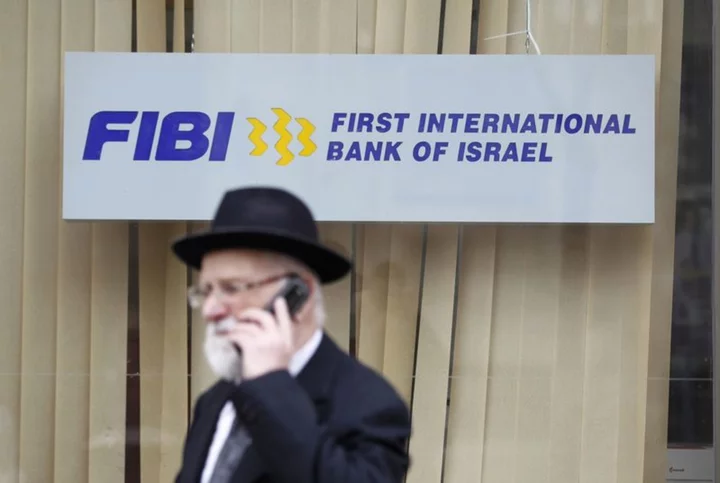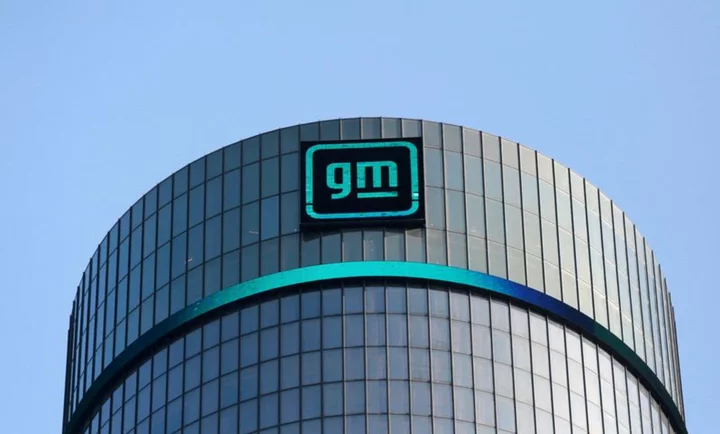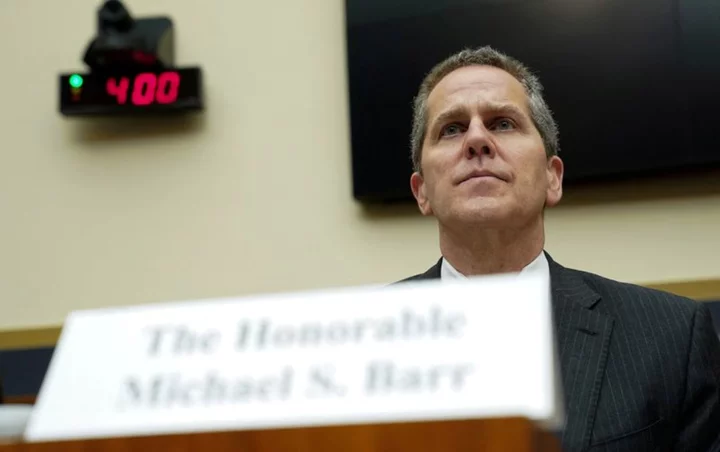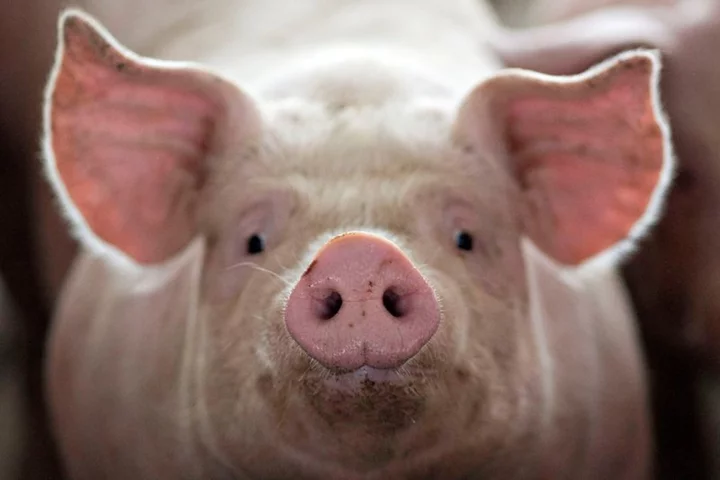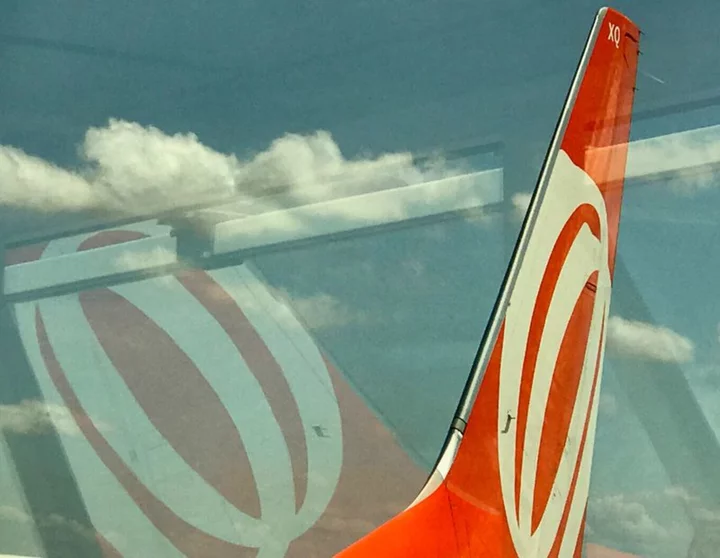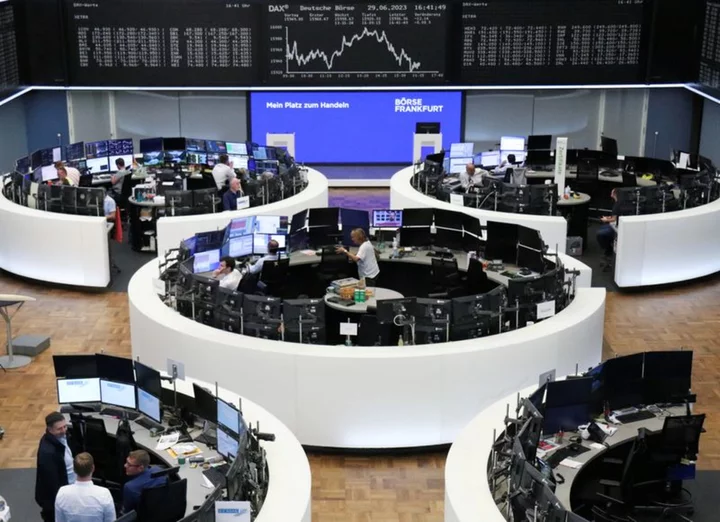By Steven Scheer
JERUSALEM First International Bank of Israel (FIBI) reported a dip in third-quarter net profit, hurt by a quadrupling of its provisions to protect against future loan defaults due to economic uncertainty during Israel's war with Hamas militants.
FIBI, Israel's fifth largest bank, also said on Wednesday it would keep unchanged its dividend policy of paying out 50% of annual net profit.
Net profit for the July-September quarter was 455 million shekels ($124 million), down from 467 million shekels a year earlier.
FIBI said it had 165 million shekels in credit loss expenses in the quarter, versus 43 million the previous year.
Net interest income rose to 1.22 billion shekels from 1.01 billion shekels, as Israel's banks have been helped by aggressive Bank of Israel interest rate hikes to fight inflation.
"The growth in our revenue allows us to create higher financial buffers at this time, both as buffers against credit losses and capital buffers, mainly against the background of uncertainty in the economy and concerns regarding predicted macro-economic impacts, as well as developments in geo-political conditions," said CEO Smadar Barber-Tsadik.
FIBI recorded a non-interest financing expense of 1 million shekels in the quarter versus income of 48 million the year before.
Israel's banking regulator asked banks to bring forward higher loan loss provisions to their third-quarter results despite the war breaking out at the start of the fourth quarter. The central bank also told banks to remain conservative when issuing dividends, and to provide credit while the country was at war and the economy was set to slow.
FIBI said its board approved a dividend distribution of 90 million shekels.
It said that costs to the bank due to benefits provided to customers for dealing with the impact of the war were estimated at up to 120 million shekels, or 7% of net profit for the first nine months of the year.
The bank's Tier 1 capital ratio stood at 10.84% at the end of September versus 10.42% at the end of 2022.
($1 = 3.6758 shekels)
(Reporting by Steven Scheer; Editing by Mark Potter)

